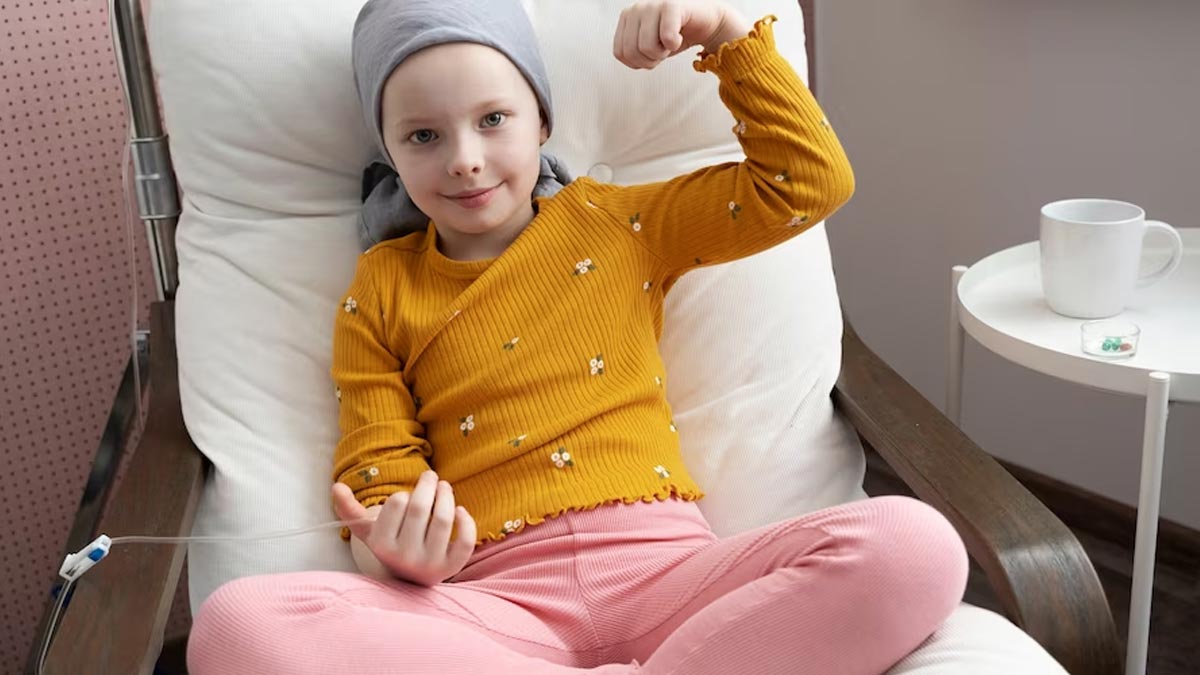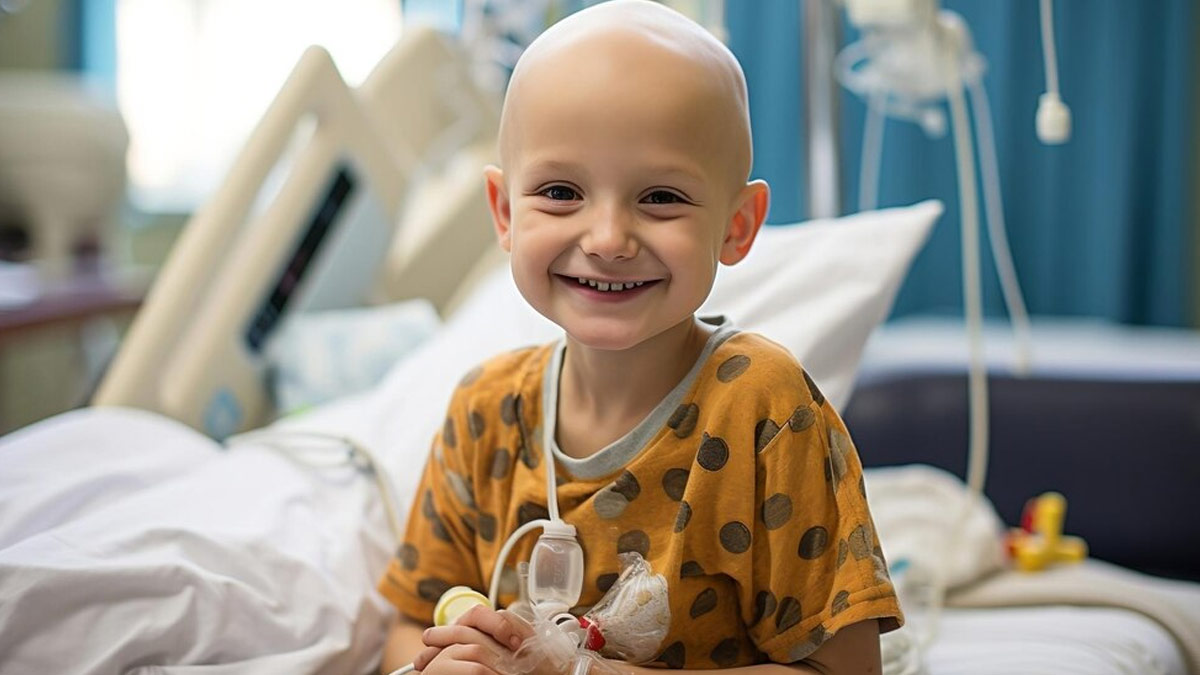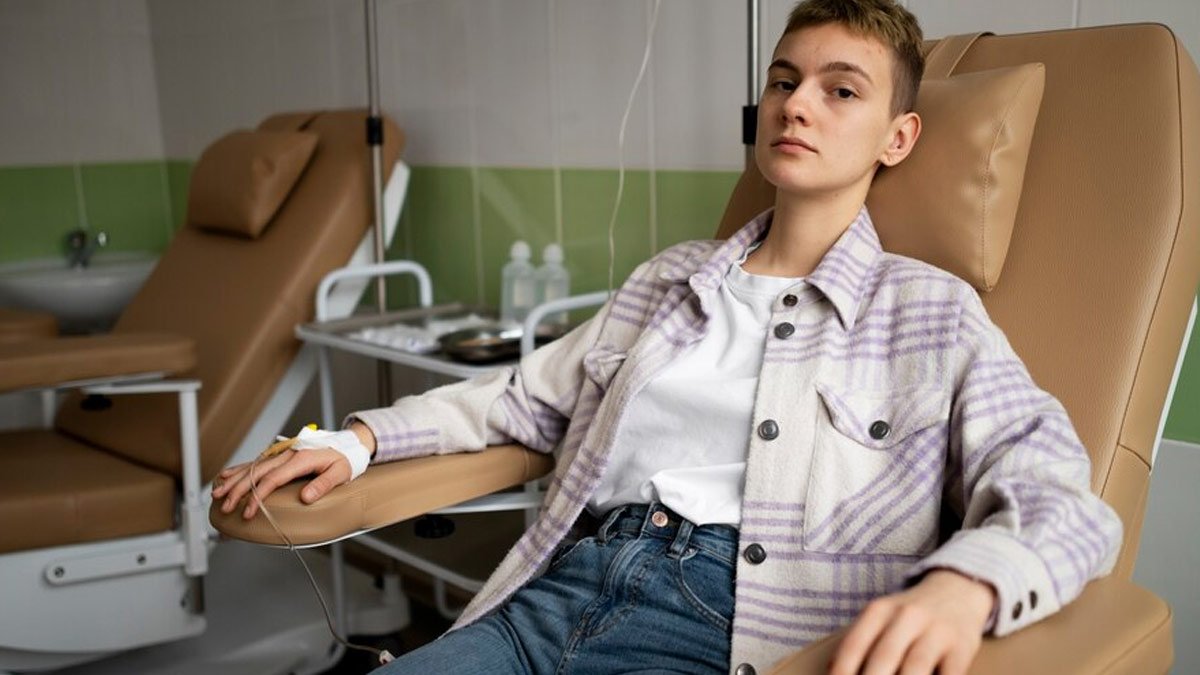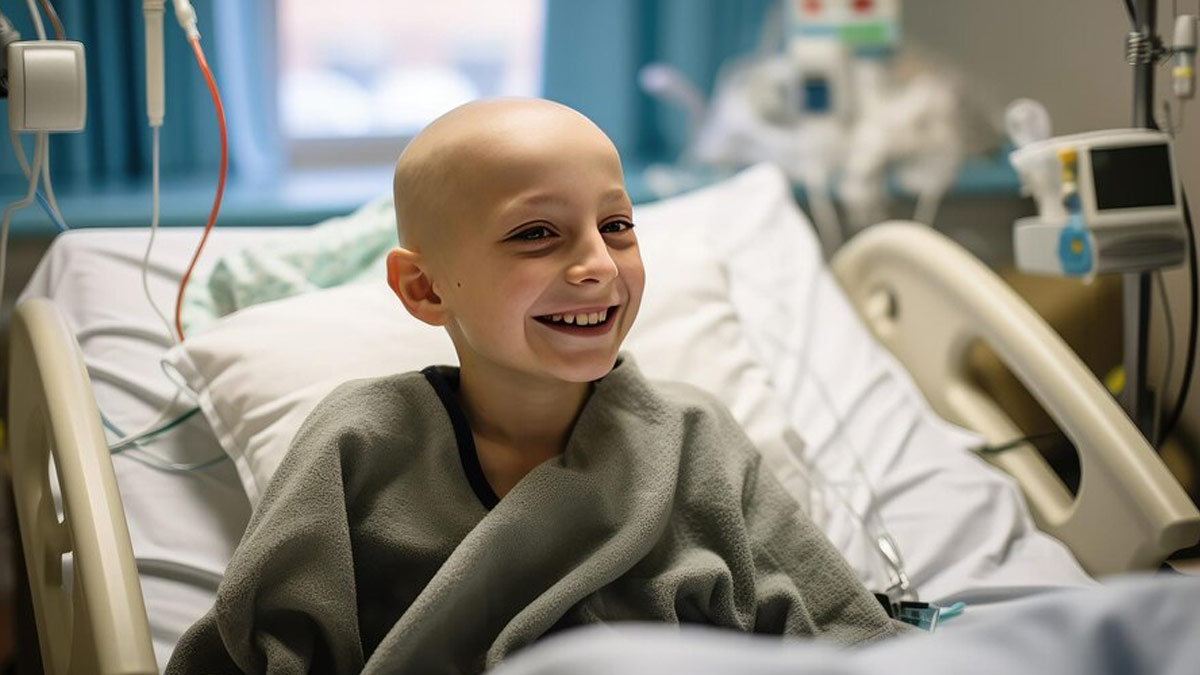
Cancer knows no age, which is why even children are at risk. Blood cancers in children comprise a set of conditions that impact the blood and bone marrow, presenting unique challenges when it comes to both diagnosis and treatment. To understand the challenges faced by paediatric patients, we spoke to Dr Arun Seshachalam, MD, DNB, MNAMS, DM, ECMO, Clinical Head-Oncology Division, Medical and Paediatric Oncologist, Transplant Physician, Dr GVN Cancer Institute, who shared insights on the same.
Table of Content:-

Types of Paediatric Blood Cancers
Dr Arun Seshachalam said, “Paediatric blood cancers primarily include leukaemia and lymphoma. The most prevalent among them is paediatric leukaemia, which is further divided into two main types: acute lymphoblastic leukaemia (ALL) and acute myeloid leukaemia (AML). Lymphomas can also affect children, with Hodgkin lymphoma and non-Hodgkin lymphoma being the two main subtypes.”
According to the Multidisciplinary Digital Publishing Institute (MDPI), the most frequently identified cancer in children is acute lymphoblastic leukaemia, constituting around 26% of malignancies in paediatric patients.
Also Read: Blood Cancer Awareness Month: Expert Explains Early Signs and Diagnosis
Challenges Faced by Paediatric Patients

Early Diagnosis
One of the primary challenges in paediatric blood cancers is early diagnosis. Dr Seshachalam said, “Symptoms in children can be subtle and easily attributed to common childhood illnesses. For instance, fatigue, fever, and bruising may be mistaken for a viral infection. This delay in diagnosis can lead to the disease progressing to an advanced stage, making treatment more complex.”
Emotional and Psychological Impact
A blood cancer diagnosis can be emotionally devastating for children and their families. Dr Seshachalam added, “Young patients often struggle to comprehend the severity of the disease, while parents are faced with the emotional turmoil of seeing their child suffer.” Paediatric oncology teams play a crucial role in providing emotional support and guidance to both children and their families throughout the treatment journey.
Unique Treatment Challenges
Dr Seshachalam highlighted, “Treating paediatric blood cancers requires a delicate balance. Aggressive treatments, such as chemotherapy and radiation therapy can have long-term side effects, including developmental delays, growth problems, and fertility issues. Paediatric oncologists must carefully tailor treatment plans to maximise the chances of a cure while minimising these potential consequences.”
Clinical Trials and Research
Due to the relatively low incidence of paediatric blood cancers compared to adult cases, there is a limited pool of patients available for clinical trials. This can hinder the development of new treatments specifically designed for children and adolescents. However, paediatric oncology research continues to advance, offering hope for more targeted and effective therapies in the future.
Treatment Options for Paediatric Blood Cancers

Treatment for paediatric blood cancers is typically guided by the specific type of cancer, its stage, and the patient's age and overall health. Dr Seshachalam listed the common treatment options as follows:
Chemotherapy
Chemotherapy is often the first line of treatment for paediatric blood cancers. In this process, powerful drugs are used to target and destroy cancer cells. Paediatric oncologists carefully design chemotherapy regimens to minimise side effects and long-term complications.
Radiation Therapy
Dr Seshachalam added, “In some cases, radiation therapy may be used to target cancerous cells with high-energy radiation beams. This treatment is usually reserved for localised disease or as part of a combination therapy.”
Also Read: All About Cancer: Expert Explains Its Types, Growth, and Treatment
Bone Marrow Transplantation
Dr Seshachalam noted, “Stem cell or bone marrow transplantation is considered for certain cases of paediatric leukaemia or other blood disorders. It involves replacing diseased or damaged bone marrow with healthy stem cells to promote the growth of healthy blood cells.”

Targeted Therapy
Targeted therapies are increasingly being used in paediatric oncology. These drugs are designed to specifically target cancer cells while sparing healthy ones, minimising side effects.
Immunotherapy
Immunotherapy harnesses the body's immune system to recognise and attack cancer cells. This approach is showing promise in the treatment of paediatric blood cancers.
Supportive Care
Paediatric oncology teams provide comprehensive supportive care, including pain management, nutritional support, and psychosocial services to address the physical and emotional needs of young patients and their families.
Bottomline
Dr Seshachalam concluded, “Paediatric blood cancers present unique challenges, from early diagnosis to the emotional and psychological impact on children and families. However, advances in research and treatment options offer hope for improved outcomes and a better quality of life for young patients. With a dedicated and multidisciplinary approach, paediatric oncology teams strive to provide the best possible care and support for children and adolescents facing these challenging diseases.”
[Disclaimer: The information in this article is shared by a registered healthcare professional and is for informational purposes only. Hence, we advise you to consult your expert for an effective treatment catered to your medical history.]
Also watch this video
How we keep this article up to date:
We work with experts and keep a close eye on the latest in health and wellness. Whenever there is a new research or helpful information, we update our articles with accurate and useful advice.
Current Version